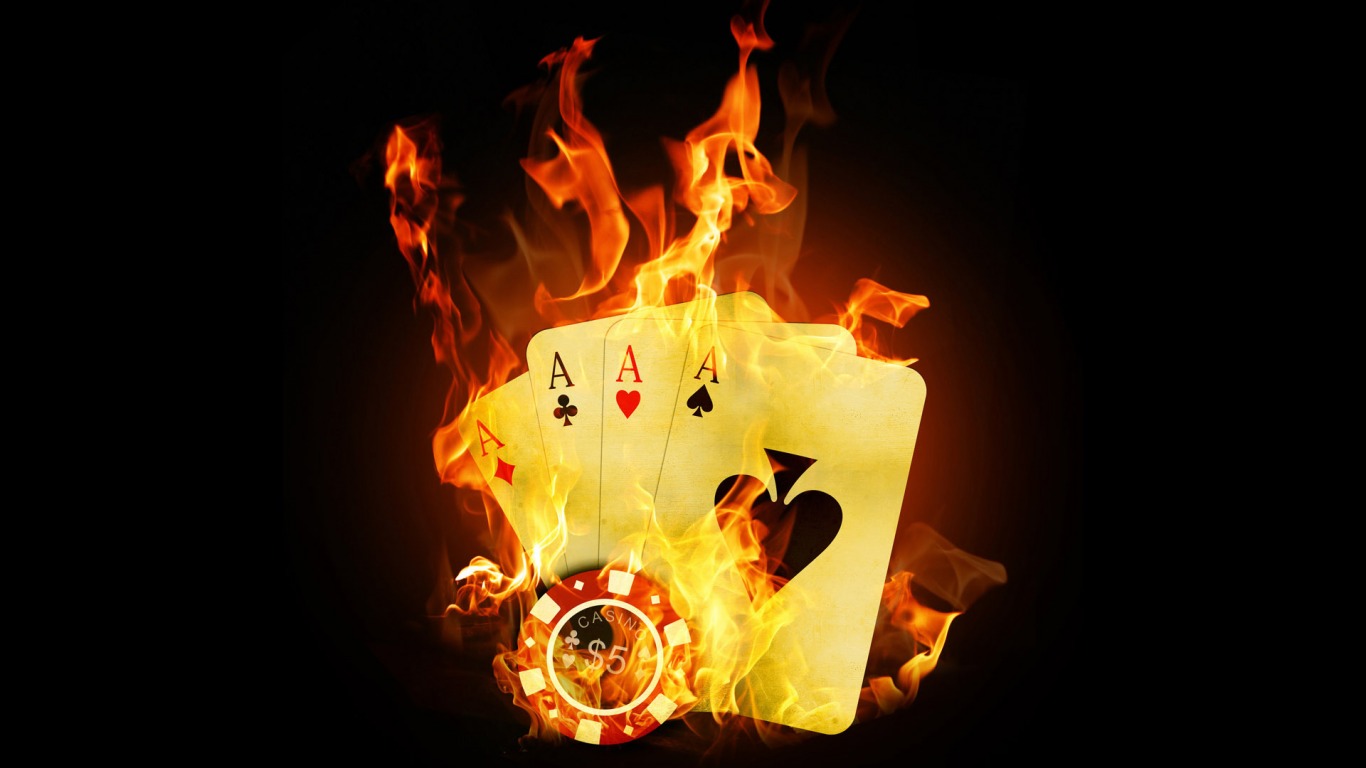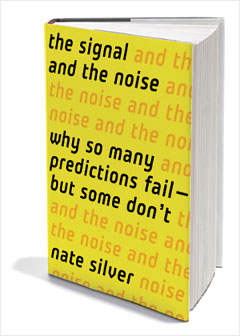
By Annie Duke
One of the most important qualifications in your journey to become a great professional poker player, c is good bankroll management. In fact, bankroll management is somehow much more important than talent.
One of the most important qualifications in your journey to become a great professional poker player, c is good bankroll management. In fact, bankroll management is somehow much more important than talent.
ByAnnie Duke
 One of the most important qualifications in your journey to become a great professional poker player, c is good bankroll management. In fact, bankroll management is somehow much more important than the talent (NDT: it is worth noting that the words of l author do not necessarily reflect the vision of the translator). I've seen lots of good poker players become penniless because poor bankroll management: playing too high limits, they themselves are picked up broke.
One of the most important qualifications in your journey to become a great professional poker player, c is good bankroll management. In fact, bankroll management is somehow much more important than the talent (NDT: it is worth noting that the words of l author do not necessarily reflect the vision of the translator). I've seen lots of good poker players become penniless because poor bankroll management: playing too high limits, they themselves are picked up broke.
C is obviously why the first two examples are poor bankroll management. If you have only funds from $1.000, $20-$40 tables is a terrible idea, because you can be broke in no time. Play your bankroll games where skills do not count as craps, is really a bad idea also. But qu is what I mean by the last example? Should you not sometimes climb limit when the game seems profitable? No, not necessarily!
Let's say you play generally hold'em $10-$20 and from $15-$30. You walk in an poker room one day and see tables $30-$60 fantastic with a large number of fish on which sits a player from $15-$30. This table could really enrich your bankroll, not true? Well, think of it on the negative side:
If you play this limit, c is twice the limit at which you usually play. This means you'll earn twice as much, true? Fake. The pro playing this limit is going to be much better than you; After all, he defeated a limit which is twice higher than that to which you usually play.
Consider that the fish must be really bad to overcome the fact that the pro is much stronger than the one you are attending to your usual limit. What happens often c is that regardless of money l you take fish from the table, you become a 'holding station' for professional players, in other words, c d is as if you réchauffiez tokens of the pros in the addictive to the weaker players. Thus, if you want to take the risk of playing at a higher limit, you should consider how much better you are the players to this limit. Playing with players who outperform you makes you lose l advantage you might have to play with the lower limit players.
It does finally not worth versus the risk that you run. If you are a good player of $15-$30, may fight the game for an upgrade per hour, so $30. If you climb up to the $30-$60 that feel you juicy, what happens to your gains versus the variance? The fact that you have to play against combined to significantly better players you play outside your comfort zone, you will win probably half d l hour, so $ 30 upgrade. It is the same $30 per hour that you take in the $15-$30 with two times more risk! You earn the same amount of updates per hour, but must confront the variance of the $30-$60 rather than the $15-$30.
In fact, the risk is probably more than double, because a juicy game is usually more aggressive and more the game is aggressive, more variance is high. If you mount limit only when the game is really juicy, you will expose you to high variance. Thus, even if you increase your winnings by three-quarters a bet per hour, or $45 (d), you must still endure the variance and support significantly larger fluctuations in the 30$-$60 more that your bankroll can support.
I know that you think that if the parties are really good, you win more than one set at the hour and will double your winnings. So you should climb limit, right? I still say no because it remains simple qu in the short term, the chance is very important Poker and n matter what very good player will be a big loser if the luck is not with him. If you want to take that risk, you should ensure you d be able to play at this table without which the variance can ruin all your winnings last month in a single day. If you climb limit and have a bad day, it could cause you to lose all the hard work you did in the last days, any ca to issue d an unlucky situation. That is correct, your winnings in recent months gone because you have increased limit with aggressive players, playing double what you play usually.
Now, of course, there are other reasons to climb limit. The main reason that comes to mind might be that you want to know if you are ready to beat this limit. In this case, go ahead and climb. See if you're ready to play with the big boys. But let me suggest that you sell half of your bankroll to someone else if you take this avenue. In this way, you do risk losing everything while you look at the water.
So consider the risks when you feel juicy parts, because in the end, it may not be as juicy as it l air for your bankroll!
 One of the most important qualifications in your journey to become a great professional poker player, c is good bankroll management. In fact, bankroll management is somehow much more important than the talent (NDT: it is worth noting that the words of l author do not necessarily reflect the vision of the translator). I've seen lots of good poker players become penniless because poor bankroll management: playing too high limits, they themselves are picked up broke.
One of the most important qualifications in your journey to become a great professional poker player, c is good bankroll management. In fact, bankroll management is somehow much more important than the talent (NDT: it is worth noting that the words of l author do not necessarily reflect the vision of the translator). I've seen lots of good poker players become penniless because poor bankroll management: playing too high limits, they themselves are picked up broke.C is obviously why the first two examples are poor bankroll management. If you have only funds from $1.000, $20-$40 tables is a terrible idea, because you can be broke in no time. Play your bankroll games where skills do not count as craps, is really a bad idea also. But qu is what I mean by the last example? Should you not sometimes climb limit when the game seems profitable? No, not necessarily!
Let's say you play generally hold'em $10-$20 and from $15-$30. You walk in an poker room one day and see tables $30-$60 fantastic with a large number of fish on which sits a player from $15-$30. This table could really enrich your bankroll, not true? Well, think of it on the negative side:
If you play this limit, c is twice the limit at which you usually play. This means you'll earn twice as much, true? Fake. The pro playing this limit is going to be much better than you; After all, he defeated a limit which is twice higher than that to which you usually play.
Consider that the fish must be really bad to overcome the fact that the pro is much stronger than the one you are attending to your usual limit. What happens often c is that regardless of money l you take fish from the table, you become a 'holding station' for professional players, in other words, c d is as if you réchauffiez tokens of the pros in the addictive to the weaker players. Thus, if you want to take the risk of playing at a higher limit, you should consider how much better you are the players to this limit. Playing with players who outperform you makes you lose l advantage you might have to play with the lower limit players.
It does finally not worth versus the risk that you run. If you are a good player of $15-$30, may fight the game for an upgrade per hour, so $30. If you climb up to the $30-$60 that feel you juicy, what happens to your gains versus the variance? The fact that you have to play against combined to significantly better players you play outside your comfort zone, you will win probably half d l hour, so $ 30 upgrade. It is the same $30 per hour that you take in the $15-$30 with two times more risk! You earn the same amount of updates per hour, but must confront the variance of the $30-$60 rather than the $15-$30.
In fact, the risk is probably more than double, because a juicy game is usually more aggressive and more the game is aggressive, more variance is high. If you mount limit only when the game is really juicy, you will expose you to high variance. Thus, even if you increase your winnings by three-quarters a bet per hour, or $45 (d), you must still endure the variance and support significantly larger fluctuations in the 30$-$60 more that your bankroll can support.
I know that you think that if the parties are really good, you win more than one set at the hour and will double your winnings. So you should climb limit, right? I still say no because it remains simple qu in the short term, the chance is very important Poker and n matter what very good player will be a big loser if the luck is not with him. If you want to take that risk, you should ensure you d be able to play at this table without which the variance can ruin all your winnings last month in a single day. If you climb limit and have a bad day, it could cause you to lose all the hard work you did in the last days, any ca to issue d an unlucky situation. That is correct, your winnings in recent months gone because you have increased limit with aggressive players, playing double what you play usually.
Now, of course, there are other reasons to climb limit. The main reason that comes to mind might be that you want to know if you are ready to beat this limit. In this case, go ahead and climb. See if you're ready to play with the big boys. But let me suggest that you sell half of your bankroll to someone else if you take this avenue. In this way, you do risk losing everything while you look at the water.
So consider the risks when you feel juicy parts, because in the end, it may not be as juicy as it l air for your bankroll!




